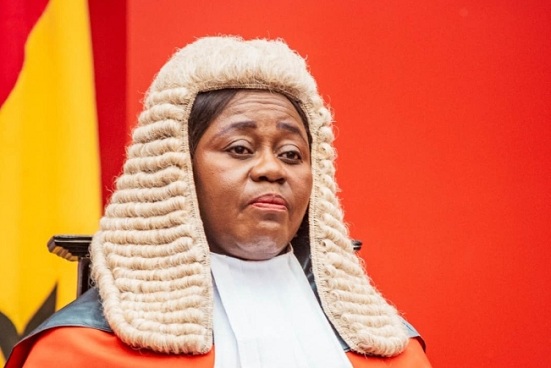The suspended Chief Justice (CJ), Justice Gertrude Torkornoo, has filed a case against the Republic of Ghana at the ECOWAS Court, alleging violations of her human rights.
This was disclosed on social media by Ghana's Deputy Attorney General, Justice Srem Sai, on Tuesday, July 8, 2025
According to him, the case filed on Thursday, July 4, cites the Government of Ghana for alleged breaches of her rights in the ongoing process to remove her from office.
In the case, which was filed on July 4, Her Ladyship repeated the same allegations of human rights violations which are currently pending determination before our Supreme Court and also before our High Court in respect of the ongoing removal processes, he wrote on Social media.
He further explained:
"Essentially, Her Ladyship argues that by her suspension, she ‘has effectively been removed from her official capacity without a final determination, impairing her right to function and serve in a position she was constitutionally appointed to."
It would be recalled that the Supreme Court struck out a supplementary affidavit filed by suspended Chief Justice Gertrude Torkonoo in support of her injunction application on May 28, 2025.
I can confirm that the Chief Justice - Her Ladyship, Justice Gertrude Torkornoo - has filed another court case - this time, at the ECOWAS Community Court in Abuja, Nigeria, against the Republic.
— Justice Srem-Sai (@JusticeSremSai) July 8, 2025
In the case, which was filed on July 4, Her Ladyship repeated the same allegations…
The affidavit alleged inhumane treatment, violation of her dignity, and described the ongoing proceedings as a “mockery of justice” and a “ruse” aimed at unjustifiably removing her from office.
However, the apex court ruled that the contents of the affidavit referred to events that occurred before the committee investigating the petitions for her removal — proceedings which, by law, are expected to be held in camera.
A five-member panel of the court upheld an objection raised by the deputy Attorney General, Justice Srem Sai who argued that the supplementary affidavit violated Article 146(8) of the Constitution. That provision mandates that proceedings concerning the removal of justices be conducted in private.





